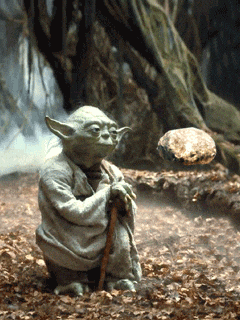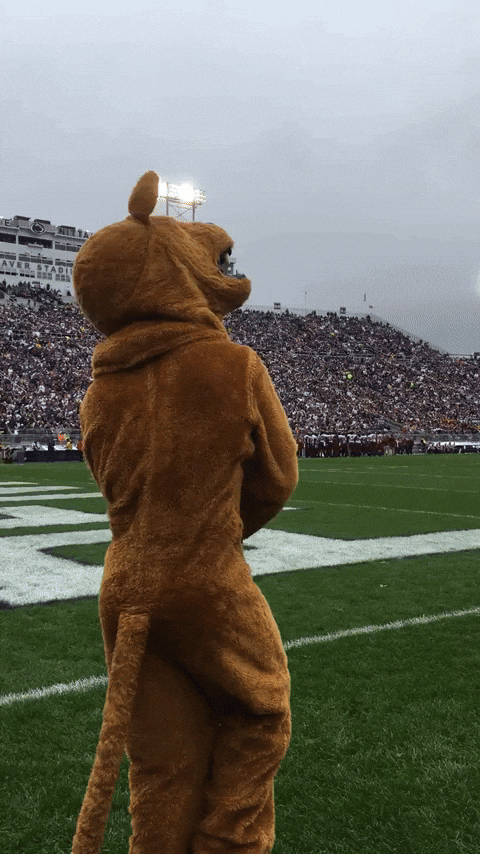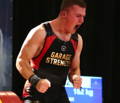What Makes A Great Coach?
Recently on our SubReddit, we got asked what constitutes a good coach. Currently, in 2021, it is important that we understand what a good coach is and the lens we can use to evaluate a coach. With the lens for evaluation, we can view coaching through this lens to decipher what makes a coach good in certain regards, poor in other regards, and what can be done to continue to improve.
Immediately we have to put forth the purpose of this article is to discover what makes a good strength and conditioning coach, or more specifically discuss what makes a good coach in general. To do this, I want to provide a couple of key examples of how I have struggled with athletes. Many of these athletes to be discussed as examples are people I have begun working with since middle school, day one, and have taken a few to a super-elite level. I want to share not only where I failed as a coach but where I also believe I succeeded as a coach.
Start To World Team
Jake Horst, Hayley Reichert, and Jordan Wissinger are athletes who I worked with from the beginning of their training in weightlifting since middle school all the way to senior world teams. The other athlete is Nicholas Singleton, a football player. Now under Nick, I could provide dozens of examples but feel using Nick, who is currently a senior in high school and heading to Penn State after graduating high school, is the most relevant currently.
So when we look at these groups, these individuals, and answer the question, what makes a good coach, there are a couple of very important aspects that need to be discussed with the athlete immediately. The moment that the coach begins to engage with individuals, the coach has to ask key questions to plant a seed early on and provide a level of direction based upon the answers the athletes are providing.
The coach has a key role in this relationship. The coach is the guide. Someone like Spock, like Yoda, Obi-wan. The coach helps answer all the problems. The coach provides vision and direction. Coaches, oftentimes, are fortunate enough to be older. Coaches tend to be older than their pupils. Coaches have distinct experiences that the individuals being trained don’t have.

I started training Nick, Haley, and Jake in 6th grade. Jordan started with me in 10th grade. None of these individuals had the life experience I had as their coach at the time. My experience allowed me to provide a vision and direction as to where I needed to take their training. The training needed to be triggered by certain things. A really good coach can plan out a blueprint of the direction the partnership will be heading based on their coaching vision. This doesn’t disregard everything the athlete is trying to do. This is where the questions come into play.
The Questions: What
We can start with the first big questions. That question is: What? This doesn’t mean I just go up to the athlete and ask them, “What do you want to be today? What do you see yourself doing in the future?” Nah. Instead, it is about the conversation. It is through watching them warming up. It is about seeing them move. It is about seeing all the nitty-gritty, noticing structural balances.
And yes, it is great to know about movement patterns and how to increase strength, but if you don’t have the charisma to lead anyone you will suck as a coach. You can know all these details, take a million courses, and still fail. Coaches must know how to communicate with their athletes and get them to follow your direction, you will suck. This stuff is way more important than the actual specific tasks of what the athlete needs to do. This coaching information is what will make athletes actual champions.
I want to talk about Hayley and Nick. As opposite as they are, they’re almost the same exact athlete. They are both quiet. They both do exactly what they are told to do and they do it the exact way they are shown how to do it. So that is a key concept: figuring out what type of athlete is being dealt with. So know what type of athlete we are dealing with. Also, what type of athlete do they want to be. A middle school kid has no idea.
However, by 9th grade, the goal might be to make a team. As she got older, the goal became a medal at the international level. At this point, her goal is to make the Olympics. Nick starts out and wants to be the best running back. Once in high school, the goal became going D1. At this point, the goal is to become a pro. As athletes mature, they start to drill deeper into what they want to become. These type one athletes need a little prodding.

Now type two and type three athletes, especially males, will tell their coach in middle school, “I want to go to the Olympics.” It is immediate. They have no idea what it takes but they know it is what they want to do.
This leads to the next key question.
The Questions: Why
When we are talking about why we can talk about what it is they want to be and why they want to be that. Early on athletes may have no idea why they want to be this. Take Hayley for instance. In middle school, she had no idea why she wanted to accomplish these things. By high school it was fun. Now, it is because she works really hard, is motivated to keep working hard, and when she achieves these things it makes her feel good and accomplished. Nick is the same way. At this point, they are both at the level where they enjoy the work and appreciate the reward that comes after the long-term process of working to achieve. The long-term work makes it more fulfilling.

Talking about Jake, his why came from his dad being a state champion. He wanted to be successful like his dad, maybe gain some social prowess. Now Jake wants to become the best. Jake likes when people engage with me, rub his back, and tell him he is the best. Jordan is the same in that he wants to be the best. He wants people to like him as well. I’m very similar as a coach. I want people to like me too.

We can see then how the why helps us to continue to dangle the carrot as we work on the periodized structure of their training and as we are trying to get them to do all the physical aspects, we have to remember the most important characteristics occur within the brain. We as coaches need to know what fuels them to keep pulling them through the hard, arduous training so they can achieve the things they really like.
This leads us to the third question.
The Questions: How
The first two questions are really important to define what the athlete wants to do. Point A is the definition, where they start, and Point B is where they need to get to, the end result. The why helps us along that way. The how is the applied approach.
Training needs to be established. As coaches, we have to communicate the applied stuff, like training six days a week. Tell the athletes exactly what you want. Set expectations and then lead that into recovery. Make sure the athletes are eating enough, sleeping enough, and that they know your expectations. Hold them accountable as well.
Accountability is paramount. Coaches have to hold athletes accountable. Text them when they don’t show up. Little things like this are important. Hold the athletes’ established goals to hold them accountable for their own words and actions. This leads to trust. When athletes are held accountable, this builds trust. It shows, as a coach, you share the vision. Sometimes athletes have a tunneled view and vision but you as a coach have a much larger vision and scope of seeing what is possible. As a coach, you see what they can accomplish before the athlete can most times.
Holding athletes accountable breeds success. This brings even more trust because the athlete sees success from the coach’s means of accountability. As coaches, we have to hold ourselves accountable as well.
One thing I struggled with early on was clarifying my message as to where I wanted them to be. I struggled to provide a clear, clear message. I didn’t struggle with almost everything else.
Which brings about the final key factor.
Final Factor: Deliver On A Promise
At this point we have the why, we have the what, we have the how, we have the trust and the accountability the trust builds. We then have to deliver on the promise. If I’m going to say you can go to the Olympics, you can make a world team, you can be a D1 running back, or become an NFL player, I have to be able to deliver. We have to go back to the how and understand how the programming is, how the influencing is.
Telling them early on what they can do needs to be built upon and grown. This delivering on the promise leads to full closure. It continues to happen as coaches cultivate the athlete relationship and develop who they are as a coach.
Recap
Follow through from the jump with the three upfront questions. Play around and figure out how each individual athlete reacts to those questions. This will help figure out what type of athlete they are. Ultimately, delivering on that promise is a must. To deliver on that promise, know the right training, the right tools to utilize, and develop trust from the athlete through accountability.
DANE MILLER
Dane Miller is the owner and founder of Garage Strength Sports Performance. He works with a select handful of clients on building comprehensive programs for fitness and nutrition. Several times a year he leads a workshop for coaches, trainers, and fitness enthusiasts.

